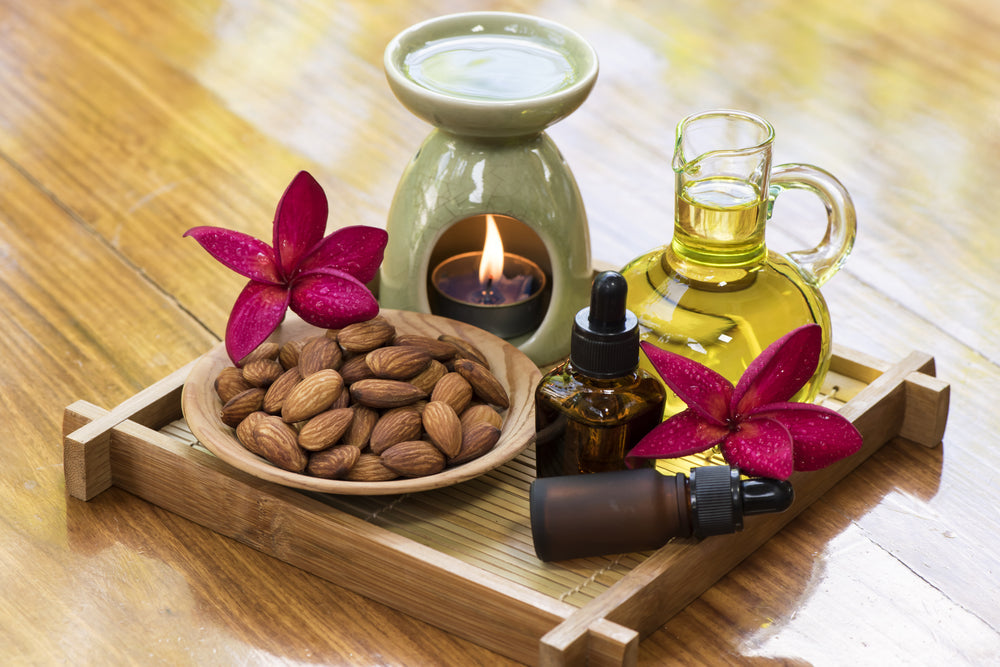
The Best Carrier Oils for Perfume: Your Expert Guide
While essential oils steal the spotlight thanks to their captivating aromas, carrier oils play an equally important role in the perfume-making process. These oils dilute essential oils, making them safe to apply to the skin while also acting as a stable base that enhances the longevity and quality of the perfume.
This article dives into the world of carrier oils, helping you navigate the best options to find the perfect base for your next fragrance creation. Whether you’re crafting a light floral scent or a rich musky blend, the right carrier oil can enhance your perfume’s performance and leave a lasting impression.
What Makes Carrier Oils Different From Essential Oils?
Unlike essential oils, which are usually distilled for their aromatic properties from non-fatty parts of plants (like flowers, leaves, roots, and bark), carrier oils are typically extracted from a plant’s fatty components (like seeds, nuts, or kernels). Because of this, these oils are rich in nutrients, such as fatty acids and vitamins, making them beneficial not only for perfume making but also for skin health.
Most importantly, carrier oils are more skin-friendly than essential oils and can be used to dilute essential oils so that they can be more safely applied to the skin. Additionally, many carrier oils are odorless or have a faint aroma that doesn’t overpower essential oils or stand out in a perfume, instead allowing the essential oils’ fragrances to shine and even increasing their longevity.
Top Carrier Oils for Perfumes
Choosing the right carrier oil is essential to crafting a high-quality perfume. Each carrier oil brings unique properties that influence how the scent develops, interacts with the skin, and lasts throughout the day.
Below is a detailed look at some of the best carrier oils for perfume making so you can pick the best option for your blend:
1. Jojoba Oil: The Perfumer’s Favorite
Properties: Jojoba oil isn’t actually an oil but instead is a liquid wax ester, making it incredibly stable and resistant to rancidity. It also closely mimics the skin’s natural sebum, which can help it blend more seamlessly with the body’s chemistry.
Why it’s great for perfumes:
- Completely odorless, ensuring your essential oils’ aromas shine.
- Long shelf life, ideal for perfumes meant to be stored.
- Lightweight and non-greasy, perfect for roll-ons or sprays.
Best for: Floral and citrusy fragrances, as it doesn’t overpower delicate scents.
2. Fractionated Coconut Oil: A Lightweight Wonder
Properties: Fractionated coconut oil is refined so that it remains liquid at room temperature. It is light and non-greasy, and also has a long shelf life.
Why it’s great for perfumes:
- Odorless and colorless, ensuring the fragrance takes center stage.
- Easily absorbed, leaving skin feeling soft without a greasy residue.
- Affordable and readily available, making it a popular choice for DIY perfumers.
Best for: Tropical or fruity summer perfumes, as its light texture can help the perfume feel less heavy in the heat.
3. Sweet Almond Oil: Versatile and Skin-Loving
Properties: Sweet almond oil is rich in vitamins E and A, offering potential moisturizing benefits. It also has a faintly nutty aroma that can complement warm or sweet fragrances.
Why it’s great for perfumes:
- Gentle on the skin, suitable for nearly all skin types.
- Medium absorption rate, allowing the fragrance to linger without feeling heavy.
- Adds a subtle, cozy warmth to the perfume’s base.
Best for: Sweet or spicy perfumes, like vanilla, cinnamon, or amber-based blends.
4. Grapeseed Oil: Light and Quick-Absorbing
Properties: Grapeseed oil is a lightweight, pale green oil that is extracted from grape seeds. It’s rich in antioxidants and fatty acids, potentially offering mild skin care benefits for some skin types.
Why it’s great for perfumes:
- Absorbs quickly into the skin, leaving no residue.
- Mellow aroma that pairs well with bright, fresh, or citrus scents.
- Affordable and widely available.
Best for: Light, refreshing perfumes with gentle notes like lemon, bergamot, or lavender.
5. Argan Oil: A Luxurious Base
Properties: Extracted from the kernels of Moroccan argan trees, argan oil is rich, golden, and slightly nutty. It is renowned for its potentially skin-nourishing properties.
Why it’s great for perfumes:
- Luxurious feel, adding a touch of opulence to your creation.
- Mild nutty undertones that work beautifully with woody or exotic fragrances.
- Excellent for dry or mature skin.
Best for: Musky or woody perfumes, like those with notes of sandalwood, oud, or patchouli.
6. Rosehip Oil: The Vitamin-Rich Option
Properties: Rosehip oil is a heavier oil that is packed with vitamins C and A. It is known for its potential ability to promote skin health, as well as its subtle floral scent.
Why it’s great for perfumes:
- Adds a rich, grounding quality to the scent.
- Provides anti-aging benefits, making it ideal for luxurious blends.
- Works well in small quantities, often blended with lighter carrier oils.
Best for: Deep floral or earthy fragrances like rose, jasmine, or vetiver.
Using Carrier Oils to Craft the Perfect Perfume Base
Perfume making is both an art and a science, and selecting the right carrier oil is a crucial first step in creating a blend that’s successful. From understanding the characteristics of different carrier oils to learning how to blend and store your perfumes properly, understanding every step of the process contributes to a high-quality final product.
Now, you’re ready to bring your creativity to life. The perfect perfume isn’t just a scent—it’s an experience, a memory, and an extension of who you are. With the right carrier oil and a touch of inspiration, you can create something extraordinary.